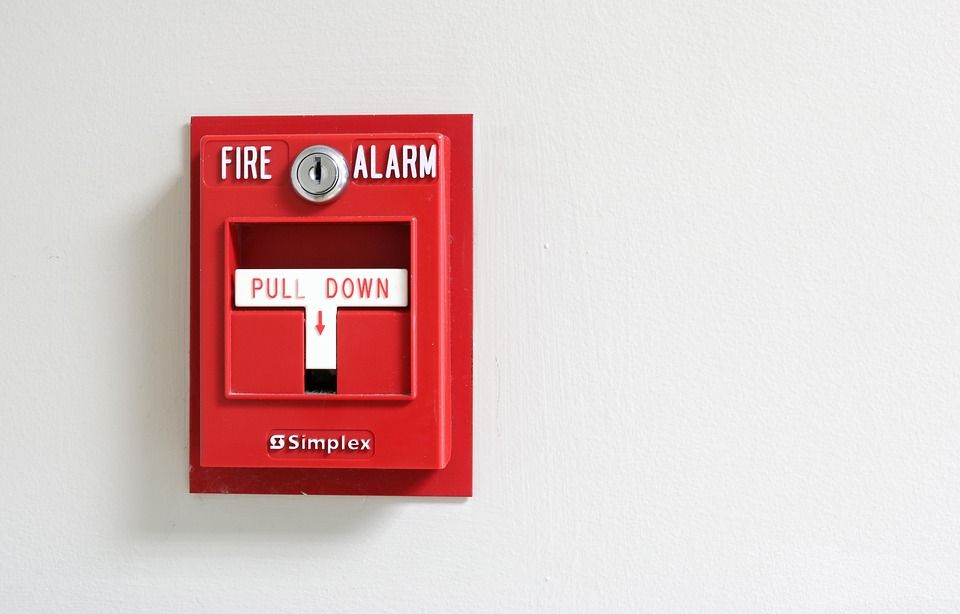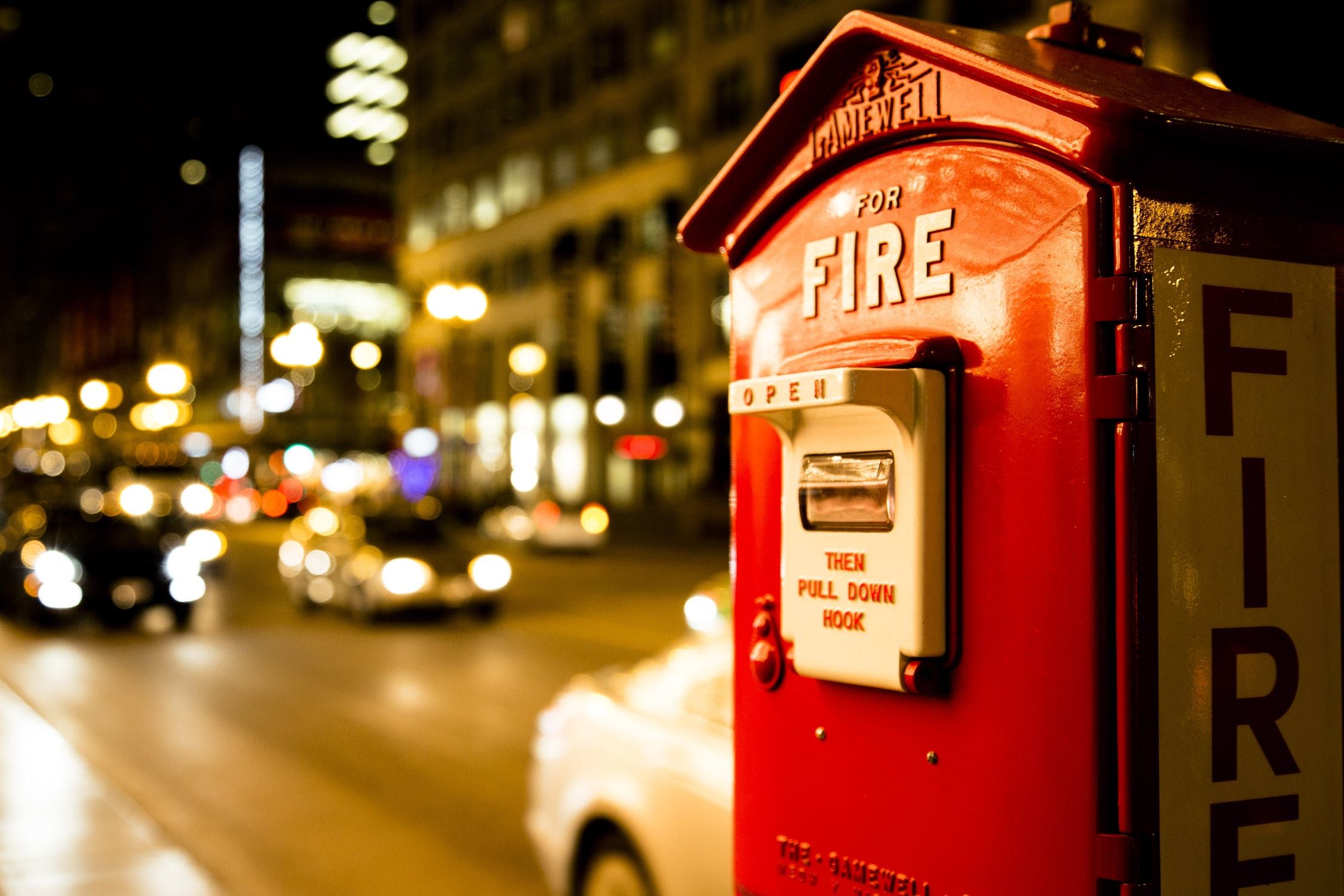- The Conventional Fire Alarm
The conventional system for a fire alarm is also known as a four-wire system. These types of fire alarms are often used in smaller buildings as they are a very cost-effective solution.
In the four-wire system, the building is separated into a selection of different detection zones, with each zone having their own fire detectors which are connected to the control panel. In the event of a fire in one of the zones, the control panel will indicate which zone the fire alarm has been activated, however with this system the individual responding to the alarm will need to manually find the specific device.
- A Two-Wire System
This specific system is one of the cheapest fire alarms to install. In addition to this low installation cost, it is also very quick to install. However, they are often more expensive to purchase when compared to the conventional fire alarms that follow a four-wire system.
When compared to the conventional fire alarm, the main difference between two and four wire alarms is that in a two-wire alarm, the detectors are all wired to the same control panel, which allows one circuit to be used in each zone.
- Analogue-Addressable Alarms
These alarms are a fantastic choice for large business areas or businesses with complex areas. Whilst analogue-addressable alarms can be significantly more expensive than two-wire or four-wire systems, they do have numerous advantages, especially with regards to large areas.
For example, with an analogue-addressable system, each detector has its own unique address, which makes it much easier to know where the alarm is coming from. Being able to identify which area of your premises has triggered the fire alarm can be very useful as that information can be passed onto any emergency responders arriving on site.
- Wireless Fire Alarms
Whilst they are more costly to purchase than other more conventional fire alarm systems, wireless fire alarms are arguably the most convenient out of all options. Additionally, they are also significantly cheaper to install due to their lack of wiring.
Wireless fire alarms are ideal for businesses that need an alarming system in an area where wiring is prohibited. They are also ideal for a wide range of businesses thanks to their flexibility. Current wireless technology has made such systems highly accurate with reliable signals that can’t be blocked, providing you with a convenient fire detection system and peace of mind.
What Fire Alarm Should You Business Choose?
- Small Businesses
If you are searching for a fire alarm system for a small business such as a local shop or restaurant, you might find that your needs are best suited by a conventional fire alarm system. However, you could always opt for a wireless system if you are concerned about installation costs associated with a four-wire setup.
- Large Businesses
If you need a fire detection system for a large business, the analogue-addressable alarm is arguably your best option. With the advantage of being alerted to a specific detector instead of just a specific zone, this style of fire alarm has clear advantages for businesses with large premises.
What About Early Warning Systems?
In some areas/rooms, fire detectors do not work, for example magnetic resonance imaging rooms in hospitals. Additionally, some buildings such as warehouses are designed in such a manner that it is un-feasible to mount a detector on the ceiling. In these circumstances, early warning systems such as Air Sampling detectors can be more effective solutions for fire detection.
An Air Sampling detector provides very early warning for fires. This system actively pulls air from the room into a detection chamber where it tests for the presence of smoke. This allows the detector to alert those on site to the presence of smoke during the very early stages of combustion, resulting in alerts before smoke is even visible.
Enjoy Peace Of Mind With Diamond Fire And Security (UK) Ltd
Our team has over 30 years of experience operating within the fire detection industry. As such, our experts are on hand to provide a wide range of solutions including both conventional, analogue-addressable systems, and early warning systems such as Air Sampling detectors.


